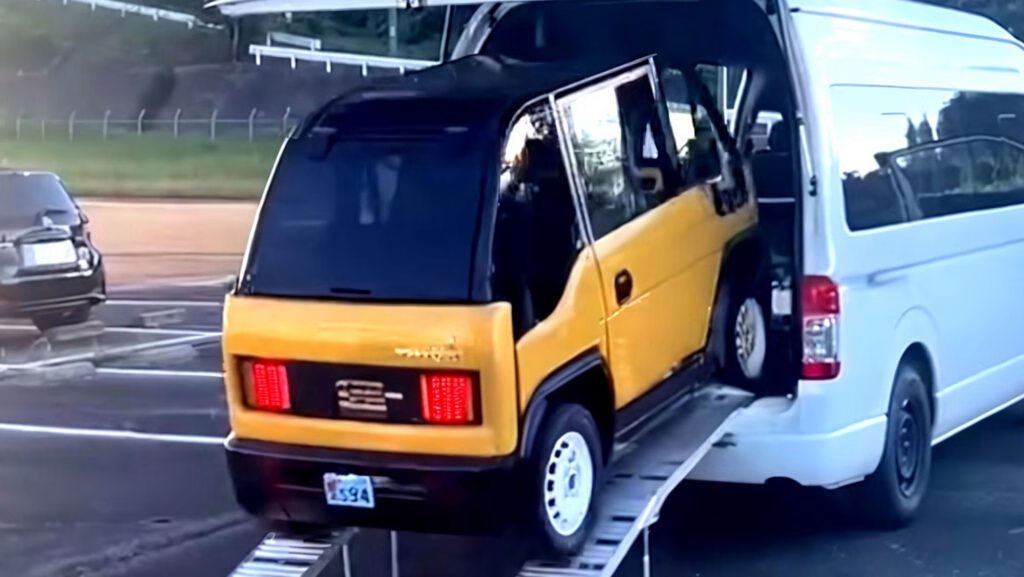Meet the Mibot: Japan’s Tiny Electric Car Revolution
When it comes to compact electric vehicles, you might think of bustling cities in China, where budget EVs are popping up like mushrooms after rain. But hold on—Japan is stepping into the spotlight with a new contender that’s even smaller and uniquely designed for its narrow streets. Enter the Mibot, a pint-sized electric car from KG Motors, a startup that’s only three years old but already making waves in the automotive world.
What Makes the Mibot Stand Out?
The Mibot is a mere 98 inches long, making it smaller than the typical Kei car and comparable in size to the Citroen Ami. This tiny vehicle is designed for urban living, where space is at a premium. With a top speed of 37 mph and a range of 62 miles, it’s perfect for zipping around town or navigating through tight spots. Plus, it only seats one person, which might sound limiting, but it’s ideal for solo commuters or those who need a simple, no-fuss ride.
Kazunari Kusunoki, the founder of KG Motors, believes that modern cars are simply too big for Japan’s infrastructure. His vision was to create a vehicle that fits the lifestyle and needs of urban dwellers. The Mibot’s small battery pack may not seem impressive at first glance, but it’s perfectly adequate for short city trips or errands in small villages.
How Is the Mibot Performing in the Market?
Since its launch, the Mibot has seen impressive sales, with 2,250 units sold already. In comparison, major players like Toyota struggled to sell just 2,000 EVs in Japan last year. This is a significant achievement for a new brand, especially considering that even established companies like BYD managed only around 2,200 deliveries in the same timeframe. The Mibot’s affordability—starting at just 1 million yen (about $7,000)—places it firmly in impulse-buy territory, making it an attractive option for anyone looking for a reliable commuter vehicle.
Kusunoki is optimistic about changing perceptions of electric vehicles in Japan. Many people still believe that EVs won’t become mainstream, largely due to skepticism surrounding their practicality. However, with the Mibot’s success, it seems that there’s a growing appetite for small, efficient electric vehicles.
What’s Next for KG Motors?
KG Motors has ambitious plans for the future. After selling the initial batch of 3,300 units, they aim to ramp up production to 10,000 units annually. This expansion could signal a shift in the market, as more consumers begin to recognize the benefits of compact electric vehicles. Kusunoki’s vision is not just about selling cars; it’s about reshaping the way people think about transportation in Japan.
The Mibot is more than just a car; it’s a statement about the future of urban mobility. As cities grow more congested and environmental concerns become increasingly pressing, vehicles like the Mibot could pave the way for a new era of transportation that prioritizes efficiency and practicality.
In a world where bigger often seems better, the Mibot is a refreshing reminder that sometimes, less is more. The big takeaway? Embracing smaller, smarter vehicles isn’t about perfection—it’s about making thoughtful adjustments that fit our lifestyles. If you’re considering a change, why not start with one small step this week? You might just find that it makes a world of difference in your daily routine.

